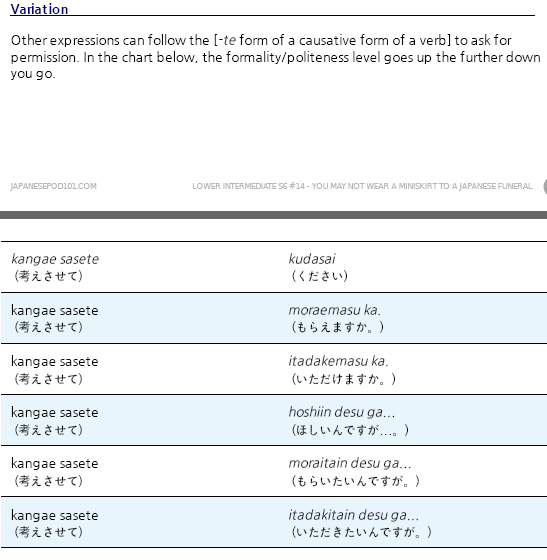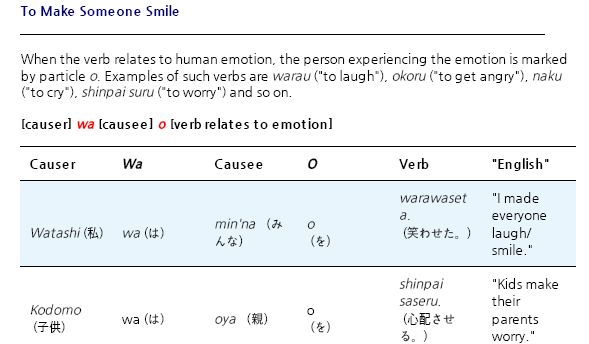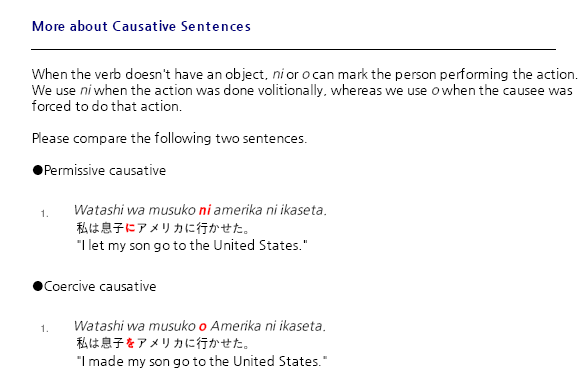Andyさん、
このメッセージを日本語の字で書かせてもいいですか。ロマジで書くのは私にとって変だからです。
Kono messeji wo nihongo no ji de kakasetemo ii desu ka. Romaji de kakunowa watashi nitotte hen dakara desu.
Will you allow me to write this message in Japanese characters? Writing in Romaji is strange for me.
"Pureisuteishon o asobasete kudasai!"
Please let me play your Playstation!
"Watashi no musume ni anata no sandoicchi o tabesasete moraemasu ka?"
Will you let my daughter eat your sandwich?
"Watashi wa tsumaranaku natte kara anata no haha no ie o yakasete hoshiin desu ga..."
Because I'm bored, I want to set fire to your mother's house...
最初の文書は大丈夫だと思います。
Saisho no bunsho wa daijoubu da to omoimasu.
I think the first sentence is fine.
次の文書はちょっと間違えたと思います。
Tsugi no bunsho wa chotto machigaetta to omoimasu.
I think there may be a mistake in the second sentence.
"Watashi no musume ni anata no sandoicchi o tabesasete moraemasu ka?"
Will you let my daughter eat your sandwich?
I think you may have to use the auxiliary verb
kudasaru here instead of
morau. I also get these mixed up, but my textbook shows an example of asking for permission using this construction and it uses the tekureru/tekudasaru/teageru format. Also, if you say
musume alone that means your own Daughter, so using
watashi is redundant.
娘にあなたのサンドイッチを食べさせてくださいませんか。
musume ni anata no sandoicchi o tabesasete kudasaimasen ka.
Wouldn't you let my daughter eat your sandwich please?
The last sentence:
"Watashi wa tsumaranaku natte kara anata no haha no ie o yakasete hoshiin desu ga..."
Because I'm bored, I want to set fire to your mother's house...
I hope I am wrong, but I think this means: "Because I have become boring, I want you to burn down your old lady's house..." [/quote]:P
Maybe something like this.....
いまごろ、ひじょうにたいくつだから、わたしはあなたのおかあさんのいえをやけおちさせたいんですが。。。
Imagora, hijouni taikutsu da kara, watashi wa anata no okaasan no ie o yake-ochisasetai n desu ga...
Nowadays, I am really bored (it's really boring), so I want to burn your mother's house down...

Hopefully I haven't led you astray with these options.

By the way, I have noticed that your posts are in romaji only and I was wondering if you understand hiragana?
Good thread by the way.
お元気で、
トラ






